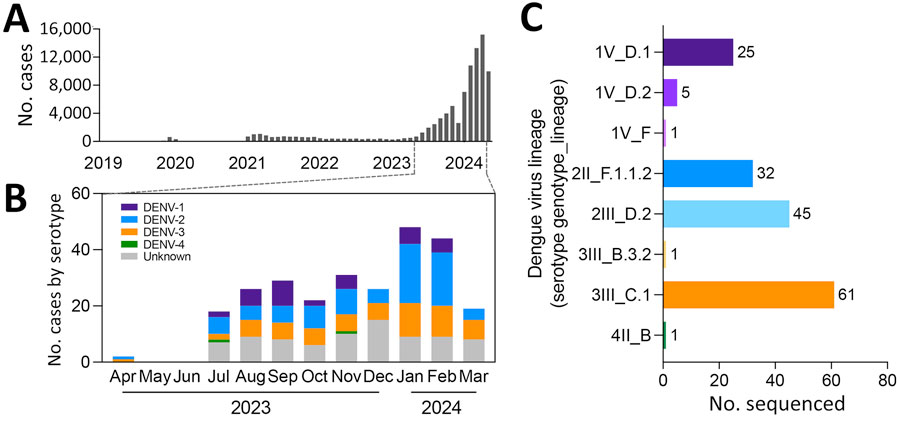Volume 30, Number 11—November 2024
Dispatch
Dengue Outbreak Caused by Multiple Virus Serotypes and Lineages, Colombia, 2023–2024
Figure 1

Figure 1. Cases in a study of multiple virus serotypes and lineages during dengue outbreak, Valle del Cauca, Colombia, 2023–2024. A) Monthly dengue cases reported by Valle del Cauca State Health Department in Colombia. Samples from confirmed dengue cases (n = 266) diagnosed at Hospital Universitario del Valle, Cali, Colombia. B) Number of cases per month by serotype during 2023–2024 period of increased dengue outbreaks. Serotypes detected by quantitative reverse transcription PCR. Samples with viral levels below detection limit are labeled unknown. C) DENV lineage by amplicon-based sequencing listed by serotype, genotype, and lineage. DENV, dengue virus.
Page created: September 18, 2024
Page updated: October 22, 2024
Page reviewed: October 22, 2024
The conclusions, findings, and opinions expressed by authors contributing to this journal do not necessarily reflect the official position of the U.S. Department of Health and Human Services, the Public Health Service, the Centers for Disease Control and Prevention, or the authors' affiliated institutions. Use of trade names is for identification only and does not imply endorsement by any of the groups named above.